Always feeling overwhelmed or stressed at work? Got too much on and need more hours in the day to get half of it achieved? Do you have employees' who take time off for 'mental stress' yet you don't have time to deal with your own?
Today we look at just some ideas on how you can avoid it, or at the very least mitigate some of your responses to you and your employees' mental health.
While understandably, work has to be done (after all that is why you are in business isn't it?), we all need to learn how to prevent work overload or fatigue and stress and still get the job done to make your business thrive, and to allow you all to survive the process.
Before we get started: To simplify what we are talking about today I am just going to use the catch all phrase 'Work Overload'.
Those words: 'Work Overload' What Do They Mean?
'Work Overload' occurs when the responsibilities of your job are higher than your available time, resources, or skillset.
It's okay to admit this, and I know that it is hard do so... but you can't do everything and be everything to everyone!
From working overtime and leaving the office or workshop later than the required job hours... to stretching yourself beyond your capacity to deliver satisfactory results with a skillset that you just don't have, there may be resources that are unavailable or time delays due to waiting for others to get back to you doing their job. All adding to the weight of the work load that you are carrying.
While it IS possible to use technology to squeeze in more tasks to your schedule in an attempt to be more productive. The feeling of accomplishing a lot of work using technology is indeed a short term confidence booster. Sadly though, you are setting yourself up for more stress by using more hours in your day to accomplish 'stuff!'.
Classifying 'Work Overload':
'Work Overload' can be easily classified as either qualitative or quantitative, in that:
Qualitative 'Work Overload' is the result of stretching your current skillset beyond your limits. Let's acknowledge that while you may be good at your job in general (otherwise why would you be doing it), you may lack the skillset for certain tasks that are either assigned to you, or you give yourself to do. You are essentially stretching yourself beyond your capacity to do a good job.
Meanwhile Quantitative 'Work Overload', is doing excess work within a limited amount of time. In this case, you may have the skillset for the task, but time just isn't on your side. Damn those deadlines!
Both kinds of 'Work Overload' will have diverse effects on you and your job in many different ways. So to help avoid it, you need to be able to recognise when you are starting to move into 'Work Overload' mode and stop yourself from going further down that rabbit warren.
SO: What Are the Common Signs of Work Overload?
Sometimes, the signs of 'Work Overload' are masked as typical day to day job challenges. And as a result of this, you might not recognize those signs until you hit rock bottom. so here are some signs to look out for...
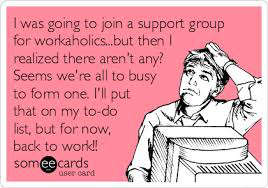
1. Taking On Extra Tasks
Taking on extra tasks isn't necessarily a bad thing, as it can increase your productivity.
BUT It becomes a problem when you engage in another task without completing the previous one, then another, and another (you get the picture).
You just end up creating a pile of work that is half done, and putting yourself under pressure.
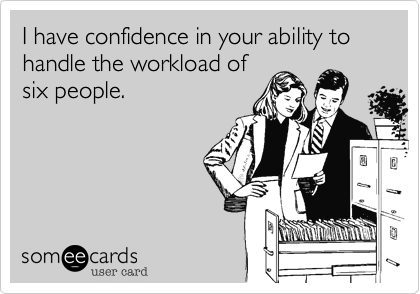
2. Feeling Stressed Constantly
A VERY clear sign that you need help is that you ALWAYS feel stressed.
In severe cases, the mere thought of going to work dampens your mood due to the clutter waiting for you.
While it's okay to feel stressed sometimes, it shouldn't be constant. After all, you are putting in emotional, psychological, and physical efforts - all of which can be draining.
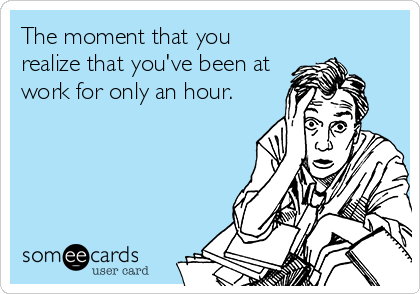
3. Uncontrollable Emotional Outburst
When you just have to keep working even when you've reached your limits, little things could trigger an emotional outburst.
For example you get touchy and take out your frustration on people at the slightest provocation, or have other emotional responses to your day, the phone ringing or people interrupting.
Seriously: Don't overlook your snapping, shouting, or tearing up, especially if you don't exhibit these signs normally.
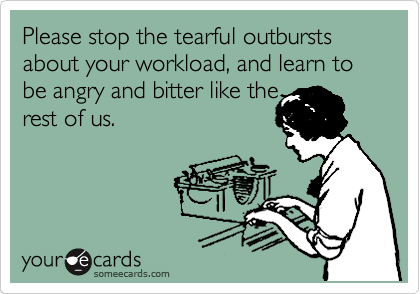
4. Having Long To-Do Lists
Making a should-do or a to-do list is a practical way to get things done.
And there is no better feeling than seeing items on your list being checked off.
BUT the problem is when you start your day with a long list and keep adding items instead of decreasing them.
I want you to see our previous post about SHOULD DO LISTS - HERE and take note!
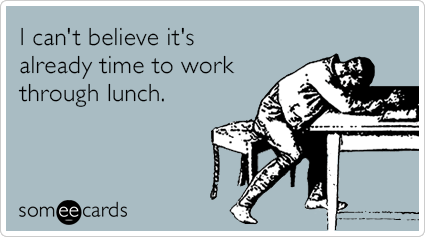
5. Insufficient Work Time
Time is hardly ever enough, especially when there's much to be done.
But if you are fond of needing extra time to work or staying extra hours in the office, it's a definite sign of work overload.
So dear reader... What can we do about it?
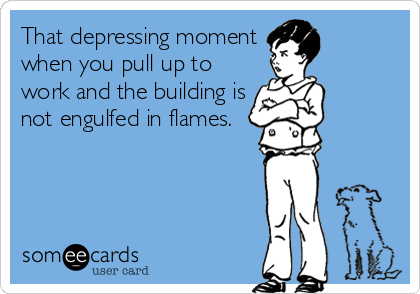
5 Tips to Avoid Work Overload
There's a thin line between 'Work Overload' and productivity, and getting the job done, or getting it done in a satisfactory manner.
If you are complacent about your duties, you won't be productive.
And if you are overly active, you'll be overworking yourself. So, how do you strike a balance?
1. Avoid Unnecessary Tasks
You are more likely to overwork yourself when you try to do every task calling for your attention.
There'll always be things to be done.
The key is to understand what's important at every point in time.
Prioritize your tasks.
Get rid of less important tasks or figure them out much later when you are less busy (or see tip 4)
2. Create a Realistic To-Do List
A long to-do list (or SHOULD DO LIST) is always more feasible on paper than in reality.
There's no need to have too many items on your list if you can't meet up with them.
Be realistic with your schedule.
Not ticking all the items on a long list can be underwhelming.
Include only the tasks that you are confident of executing.
If you exhaust your list on time, you can add more items if you want to.
3. Take Breaks
Cultivate the habit of taking breaks in between work to get rejuvenated for the tasks ahead.
It's only normal for you to get burned out after working long hours.
Until you give your body the rest it needs, you'll be causing more harm to yourself.
Your brain works better after a refreshing break, and you enter into a state of flow with unlimited possibilities.
4. Delegate Tasks
Delegation is a good way to be productive without doing everything yourself.
If you have people around who can assist you with your work, assign some tasks to them.
That way, you can accomplish your tasks without overworking yourself.
Perhaps you may be concerned that they may not do the job as well as you would.
Start by assigning the easier tasks and gradually bringing them up to speed.
5. Learn to Say No
When there's plenty of work on your hands already, decline any requests to take new tasks politely.
Saying no is difficult.
Try to make those requesting extra work understand that you are doing much work already, so adding more to it will make you less efficient.
And that's to the detriment of the organization.
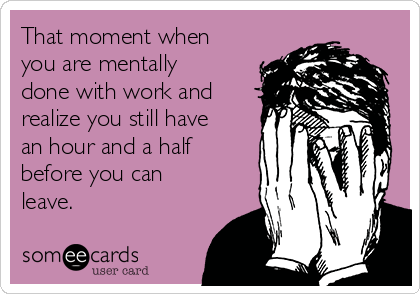
Finally... you should, and everyone in your organisation should Prioritize Your Wellbeing...
The value you place on yourself reflects on your work habits.
Even if you are in paid employment, that's no excuse to overwork yourself to the detriment of your health.
Endeavor to do your best at work. And when you are tired, take a rest to de-stress.
If it threatens your wellbeing, it isn't worth it.
Seek medical help and advice from your GP - or contact an organisation like LIFELINE (call 13 11 44).
AND there are some amazing organisations like the BLACK DOG INSTITUTE ; MENS LINE AUSTRALIA ; and BEYOND BLUE who can help too.
Until next time, stay safe.



